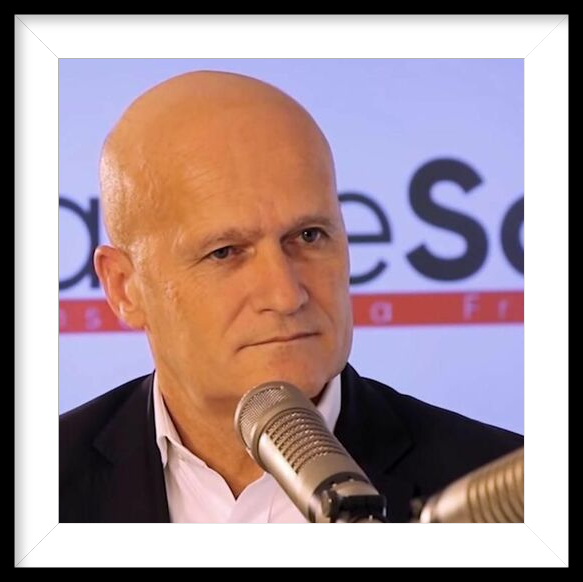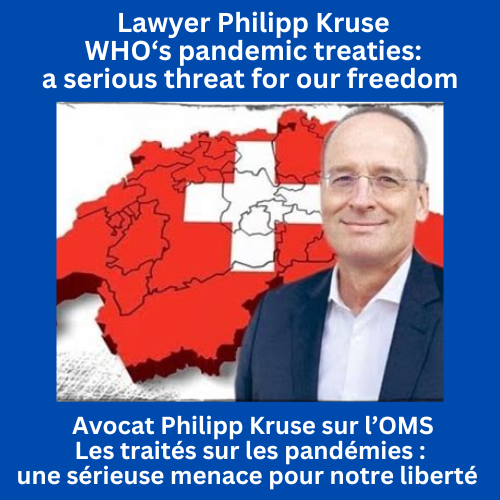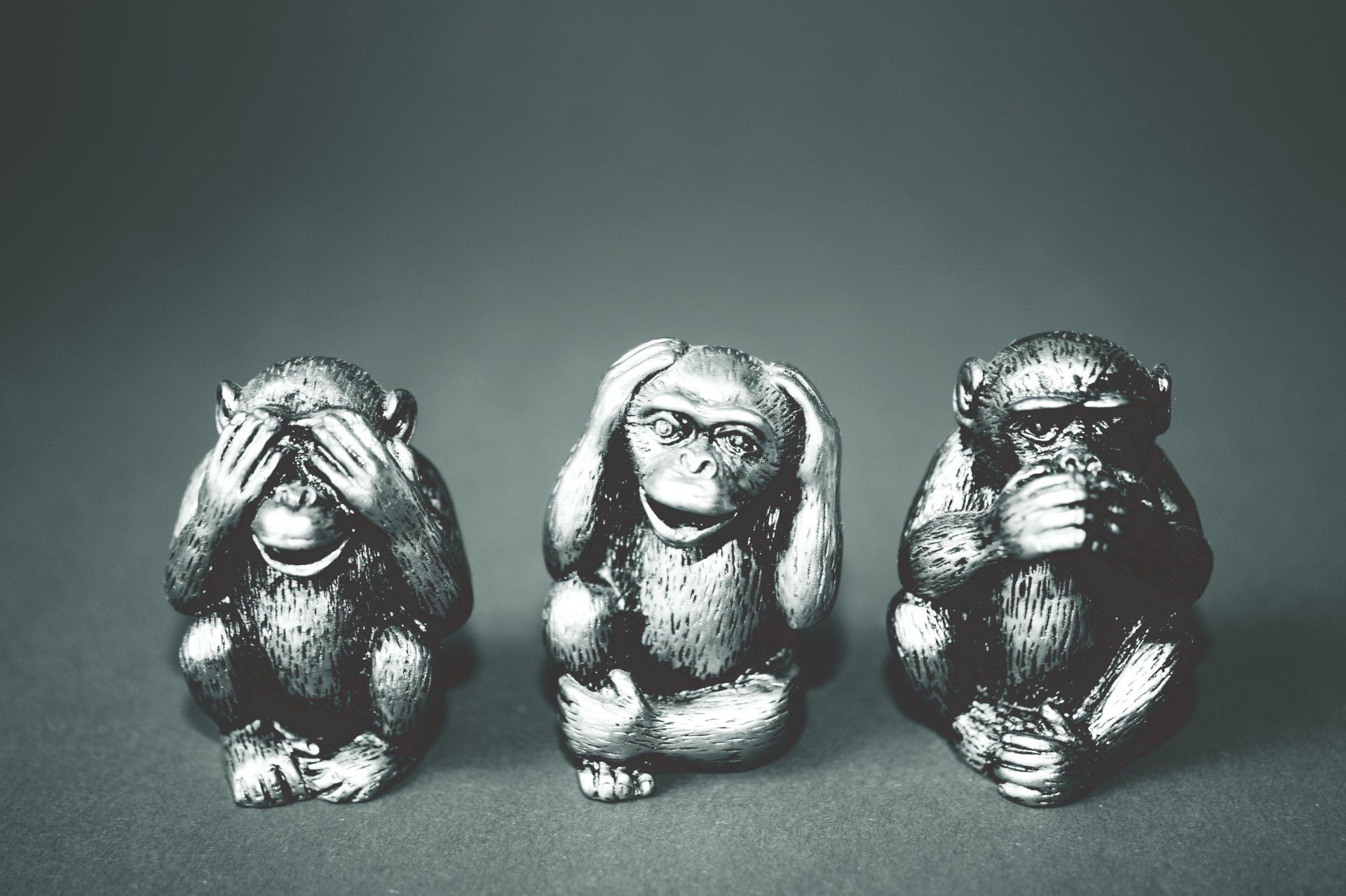"The Path Out of Trauma", transcript of Ariane Bilheran's interview, French Doctor in Psychopathogy, specialized in paranoia, harassment and totalitarianism by the Corona 19 Investigation committee initiated by Reiner Fuellmich.
Translated by The Translation Bridge
Click here to see the video on Rumble
If you want to share this content,
please do not forget to mention the link of
our website thetranslationbridge.com

Viviane Fischer:
This is very interesting. We have here with us Ariane Bilheran. She has been thinking about this. The basis on which you are fighting right now. I think we need to switch to her and maybe we can know a little bit more about this constellation. Maybe I can introduce her a little bit. She's a clinical psychologist, doctor in psychopathology, university lecturer, author, speaker, and consultant [to businesses]. She has written over 25 books. She specializes in harassment, paranoia, abuse of power and recovery of personal power.
Reiner Fuellmich:
Let's point out three basic questions that we can or will talk about. Why people engage in collective delusion? Why do some people do not join, regardless of their education or status? And also, the totalitarian system uses harassment to establish itself. The ultimate tool of paranoia pathology is harassment, and she's also going to talk about intent to harm. I think that's really interesting.
Viviane Fischer:
May be, we will start with the first question. Why are people engaging in such a collective delusion? What is the psychological background of all this?
Ariane Bilheran:
Hello, I am going to speak French. I am going to talk from a point of view of moral and political philosophy and of psychopathology, which means the study of the individual and collective psychological processes that are the reasons we are where we are today. First, I totally agree with the analysis of Professor Desmet that you have interviewed. We are in a totalitarian drift. The reason why we are in a totalitarian drift, is that totalitarianism aims to have total domination over individual’s lives especially up to the domination of the individual’s intimate life.
To make a long story short, totalitarianism works on ideology, which means on the creation of a false belief narrative that substituted itself to reality and that we are asked to adhere. The ideology, it is neither more nor less than a delusion, because the narrative does not match the reality based on experience. A delusion, in psychopathology is the creation of a new reality in a narrative to replace the existing reality. And so, we are in a collective delusion.
To understand how it works, we must rely on the fact that the totalitarian regime is based on mental pathologies. Mental pathologies create totalitarian regime. The mental pathologies that are taking power in a totalitarian regime are psychosis of paranoiac, which I will come back later, perversion, and psychopathy. Paranoia is certainly the one that is going to interest us the most because the paranoia works under delusion of persecution. In paranoia pathology, it means to designate an enemy that can be both, external or internal, for the case that is concerning us, the enemy at the beginning, is a virus, which is in itself insane because we are constituted of viruses. It means in the context of paranoia, to harass while justifying harassment to eliminate the designated enemy by the persecution.
Within the persecution delusion of paranoia, an enemy is designated that can be at the beginning, a person or for instance, a virus. But now, it slips, it evolves from the virus to the unvaccinated people. And it becomes justified to harass this enemy according to the paranoiac, because (the enemy) is supposedly the one persecuting. For everyone to fall into the delusion, we must convince Paranoia in psychiatry is called a “reasoning madness”. It appears as reason, but it is false. But there are two issues.
First, it is a delusion of interpretation, that means it is a reasoning founded on interpretations. The second issue is that it does not follow the rules of logic and third issue it is not in relation with the reality of experience.
To establish itself and survive the totalitarian regime needs an identified enemy that can legitimize its existence and because this regime is not legitimate, the presence of this enemy justifies the setting of exceptional measures, of confiscation of rights and it goes through harassment and justified to stay in power.
How is harassment working?
Harassment is the method of the totalitarian regime.
What is harassment?
It is the fact to exert some pressures on individuals to maintain a state of terror. Harassment will use manipulation based on terror and empathy.
Empathy as example empathy: “if you do not wear your mask, you are going to kill your grandmother.”
Terror and empathy.
Manipulation by emotion,
Two emotions that are manipulated.
The goal of harassment is to obtain something from individuals that they would not have given if they had not been harassed. To do an effective harassment job, it is necessary to use repeated trauma over time. Trauma is a threat to the person’s integrity and a threat to death and this is the message that was sent to the population in 2020: "we are all going to die".
Harassment also uses the feeling of guilt and seduction... of the populations but also, blackmail, intimidation, and threat. And finally, it is an abuse of power because it is always a person who has power over others that can harass. Another thing that is used in harassment that we've seen is what we called a loyalty conflict, that is, we force people to choose between... It is an impossible choice... between two things between which it is impossible to choose, as an example, between our health and our work.
Harassment is the masterpiece of paranoiac psychosis. It is very important to know, and it includes the intention to harm the other.
Harming the other is seen as necessary in the name of an unattainable delusional ideal, as an example, the eradication of the virus, it is impossible... and in the paranoiac psychosis (that is the delusion of the totalitarian regime), we demand therefore the sacrifice of some citizens. It means, the individual is no longer considered as a being in its own right, with rights, with their dignity and integrity, but as a means to reach a goal, and so, we have to sacrifice him/her because we think it is justified, we will sacrifice him/her.
Viviane Fischer:
It means that this completely illogical constellation/dynamic going to extremes like harassing the unvaccinated, making them feel guilty or responsible for the suffering that others endure, limiting what they can do, etc. All of this is part of... all of this is necessary to make it work. If it wasn't so extreme, it wouldn't have the same effect. Is that right?
Ariane Bilheran:
In fact, in paranoiac delusion, there are themes. One of them is delusional hypochondria. Hypochondria means that we believe we are sick, but we are not sick, and it is necessary to find a culprit to feel the discomfort or the impression of this disease.
Reiner Fuellmich
Does that mean that…if the same message is repeated: "Oh, there is a dangerous virus". If that same message was delivered to us calmly, it wouldn't work. We need harassment. We need it to be driven down our throat. We need to be threatened. It only works because they are harassing. Is that correct? A calm explanation would not work.
Ariane Bilheran:
It is necessary to create anguish. It is very important to create anguish. It is fundamental because in fact, it is going to damage the bonds of trust between people. Paranoia pathology is the mistrust of all against all.
Viviane Fischer:
And can I ask you if this comes from an instinct? For example, politicians say: "we have to lead the population in this direction so, just because I feel like it, I have to do it this way". It's done like or someone has really put a lot of… through…, like…social engineering aspect in order to get this exact message out to get people into that corner. Can it happen just by coincidence, or would you think it's a script written to put people in a delusional state?
Reiner Fuellmich:
Is there a well-planned agenda behind this?
Ariane Bilheran:
Paranoia is a conception of the world that concerns many of those passionate people with power and abusers of power. Therefore, it is linked to plots, that means, those who plot are the paranoiac people in power. It is a conception of the world in which, the group of individuals in power with this paranoiac conception, feeling continuously persecuted, needs to persecute others to stay in power. So, it implies the intention to harm, and it implies something last over time. There is a responsibility.
Reiner Fuellmich:
That's really interesting. It seems to me, if I understand it correctly, that in our social systems, those who rise to the top and end up in political parties in particular, they are... (look, if I look at the politicians here in Germany obviously, they are suffering of paranoia) ... Is it true that many of them do suffer of paranoia? In the sense that if they don't defend themselves, they're going to lose their power and therefore, they are willing to push this agenda just if only they are told, "you're going to lose your power, if you don't push this agenda".
Ariane Bilheran:
My point of view is that paranoiac psychosis, (that is a delusion of persecution: "others want to harm me"), is triggered from real guilt and as soon as we probably access power without a complete clean record and we want to keep it, and that we are guilty of some misdeeds, and one is going to have guilty acts, we are going to feel more and more persecuted and then, we will persecute more and more others.
Reiner Fuellmich:
Is it correct, that… first, there is an agenda, a well-planned agenda behind all of this, and secondly, that those who are carrying out this agenda, the politicians who are in power, are paranoiac enough to push this agenda because if they don't push it, they are going to lose their power?
Ariane Bilheran:
I am already going to answer to the second question. They have an anguish related to the fact they are not legitimate to be in power in relation to the acts already committed and that it could be discovered… by us… the people. Then, there is a transhumanist agenda. I sent (to Reiner Fuellmich) a file yesterday. This agenda has never detached from Nazism. It is the same conception of the world, that is... it is complicated… we have on one side the paranoia carries the ideology that means, it carries the message, the wrong belief: "we are persecuted", "there is an external or internal threat". I would like to remind here, that it was the same conception of the typhus epidemic that justified the persecution of the Jews by the Nazism. But there is not only paranoia. Paranoia is the ideology, the delusion, strategy, agenda, planning and persecution. That's paranoia, but we also have, as I said earlier, perversion, that means, some perverse profiles, that will, as an example, get rich, always taking advantage of crises and those also participate in the totalitarian system.
Attorney Virginie de Araujo-Recchia:
Can the same people be both, be paranoiac and pervert?
Ariane Bilheran :
Some pervert aspects exist in paranoia. There are some bridges. What interests us is that there is a contagion of delusion, that is that you cannot simply say that there are just some paranoiac profiles, there is something contagious. So, do paranoiacs believe in their delusion? Yes, but they have the intention to harm regarding the question of penal responsibility. They believe in their delusion, but they justify the use of harassment, of the sacrifice of individuals for supposedly fighting the enemy.
Xavier Azalbert (France-Soir):
If I may ask you, the question is, is there a legal base in psychopathology that can be recognized by a court of law?
Ariane Bilheran:
So, I have talked in 2010 with some law teachers of Penal Rights about this question. I sent [to Reiner Fuellmich] this article in French about my point of view as a psychologist regarding penal responsibility in matters of harassment.
Xavier Azalbert (France-Soir):
The question is: how could we characterize penal responsibility?
Ariane Bilheran:
The intention, the intention of harming integrity. The paranoiac is aware of that. He (the paranoiac) justifies that it is for the good of the people, the good of the other that he mistreats him/her, but he is aware of mistreating and harassing.
Reiner Fuellmich:
This kind of attempt even if it is driven by paranoia, is it valid in a criminal sense, from the point of view of the law or is it "excused" as they say here in Germany?
Ariane Bilheran:
This is the whole dilemma between psychology and law. If we talk about psychosis, because it is about a delusion, so normally penal/criminal responsibility should be exempted. This is really the article about this precise point that I sent to Mr. Fuellmich. If the person is psychotic and therefore delusional, he or she is exempt of penal/criminal responsibility. But my point of view, that was solicited as an expert at the time is that, concerning this psychosis in particular, there is the intention to harm personally, after that, it is going to be justified, but the person knows very well what he/she does regarding the damages on the other, simply, the paranoiac person will justify that it was quite normal to harm the integrity of the other.
Virginie de Araujo-Recchia:
Thus, in this crisis in particular, we see some links of interest and collusion, we can deduct that there is a clear a conscious intention to harm?
Ariane Bilheran:
- But... that is justified... We hear well: "it is not a big deal if that some are dying, it is the sacrifice for the common good".
Virginie de Araujo-Recchia:
Exactly, and so, that's what you said earlier, it is additionally contagious to the rest of society.
Viviane Fischer:
Can I ask a question? When I look at some people feeding all this panic, this pandemic or whatever... like here in Germany anyway, I don't think for example, that Professor Drosten is completely delusional about what is going on. On many occasions, he said that the virus is not so terrible. It seems to be more like a kind of concept. When he mentions this aspect, “it's dangerous” and then, “it's not so dangerous”. It goes back and forth. It's not like he's.... I'm just taking him as an example, but I don't think that … he is in a full delusion like, this is the most terrible virus we've ever seen, the vaccine is working, everybody has to take it and there are no side effects... it seems to me he knows... I also listened to him in an investigative committee here in Germany in Brandenburg. I think he could see clearly that we were not in a horrible pandemic situation, but he is still pulling strings to push this agenda, like giving excuses for the next lockdown and all these things, I don't personally believe that he is fully delusional.
Ariane Bilheran:
In fact, we are dealing with a paranoiac delusion, of the delusional hypochondria type that certainly has been launched by paranoiac profiles in their conception of the world, but first, their conception of the world is [they think] that they are persecuted by us, that is, some great billionaires who, just by the fact of having such great fortune are guilty toward humanity which is for the large part, in great poverty. So, the paranoiac delusion for them is that persecution is coming from us. [we are the persecutors] and what will happen next is to target a part of the population, and then the whole population, as the enemy. But there are many other profiles. Some people are very cynical. Some perverts are pulling the strings for their interests, without believing at all, in the ideology.
Totalitarianism is the reign of corruption and the reign of mediocre people.
We have to be said it.
Reiner Fuellmich:
That's a very, very good point because we have learned from talking to some experts [about Professor Drosten], he has good reason to believe that he has to protect himself because his reputation has been badly damaged. As a professor, you normally have to write a thesis, which he has not done. That's why two scientists took a close look at his academic background and found that there are very serious questions whether he did write a doctoral dissertation, maybe he's not even a real doctor. In this context, it would explain why he would have some kind of paranoia because he's just a mediocre doctor or maybe not a mediocre scientist, but he has a kind of paranoia that would drive him to do what he does, meaning to follow the orders of those who are pulling the strings because he's protecting himself.
Ariane Bilheran:
In fact, the paranoiac delusion is contagious and therefore, what is going to happen is that many people are going to regress psychologically and they can become perverts (as an example), that means that in normal times, they would never have done what they do, but during a totalitarian times, because it is allowed, (and they are also subject to deep anguish), it is a little bit complicated but… clearly, there are many small-time bosses [popping up], people who have to get a revenge against the system that are going to take power, some frustrations. .. Clearly, some people that are going to reveal themselves as perverts while in another context, they would not have been.
Totalitarianism persecutes the real experts; it does not want them. It does not want people who speak the truth.
Viviane Fischer:
What is the deal with people who question what is going on? How is it that they have not fallen into delusion? Because that's the second question. Why don't some people fall into the trap regardless of their level of education or status? We've seen that it doesn't depend on whether you're a professor or a lawyer or anything else to be able to see what's going on. What do these people have in common? Why don't they get caught up in the delusion?
Ariane Bilheran:
Well, I have several hypotheses. The first one is that they are autonomous profiles, able to isolate themselves from groups. It implies that, in their psychological development, they have internalized a kind of autonomy, that is, the capacity to respect the laws, even if in the external world, it does not work anymore, even if, outside, all is transgression, (which is the case of totalitarianism), there is an internal autonomy, which was acquired in the psychological development of the person. For this first hypothesis, these are individuals who have really integrated the fundamental prohibitions of civilization, notably the prohibition of murder.
Reiner Fuellmich:
They have an internal compass if you will. They know where they are going. No matter what the group thinks, they can still distinguish between right and wrong.
Ariane Bilheran:
Yes, I'm going to come to that because it has to do with the truth. The second point, I have identified 5 points for people who have not entered into delusion.
The first one: ability to isolate and autonomy. I will just say each time what it is, that is, the opposite, for totalitarianism. Totalitarianism, its proposal, is: "the individual is nothing, let's all stick together, the collective body is everything" That's the first point.
Second point: these are profiles that have internalized, accepted in their psychological development, our finitude. What is our finitude? I am not everything, neither on a spatial nor on a temporal level.
Xavier Azalbert:
These are people who are more earthbound perhaps, Ariane?
Reiner Fuellmich:
They are connected to reality.
Ariane Bilheran:
That's another point. Point number two is very important, and that is that psychologically, life is a loss, that means that we are moving forward in time and at a certain point, this brings us closer to our death. We can't have everything, we can't have all the powers, that means that we are limited beings. For example, in the second point, we are aware of the passage of time, and we are aware that we do not occupy all space. For totalitarianism, time does not exist. It functions in a circular and immobile way. And totalitarianism aims at expansion.
Viviane Fischer:
Maybe also with this second point, it means that you can see the limits of what you are allowed to do, you know, based on other people's rights... actually our basic rights you can't live your rights, your freedoms without interfering... killing someone else or having fun, something like that... not having fun but, you do something that's going to kill someone, and you don't care.
Xavier Azalbert:
What does it mean, Ariane, that someone knows his limits, where his limits end and those of someone else begin, or could we say that it is a form of understanding of relativity with respect to the system, an understanding of our own relativity?
Ariane Bilheran:
Absolutely... of one's own finitude yes, yes.
Reiner Fuellmich:
That means that people subjected to totalitarianism, these people, by the very fact that they are afraid that one day or another someone might discover that they are all the more mediocre, they end up fantasizing about their omnipotence and they want to live forever. Is this true? I'm asking you a very simplified question. Is this the reason why these people join totalitarianism, to prevent us from discovering that they are simply mediocre? It is then necessary for them to escape into grandiose dreams or beliefs, eternal life..., and there is no time limit for them.
Ariane Bilheran:
Absolutely. In transhumanism, there is the delusion of immortality.
Reiner Fuellmich:
That explains everything, yes.
Ariane Bilheran:
Third point: an ability to clarify places and have a truth anchor, that is, the ability to differentiate between truth and lies, it goes with moral capacity. From a psychological point of view, it goes together: the ability to distinguish between right and wrong. Because there can be no justice if one does not seek the truth. And conversely, totalitarianism is the reign of lies, arbitrariness and injustice.
Fourth point: the capacity for the person, the psychic capacity for the person to overcome the traumas. This can come from past experience. And a capacity at the same time to distance oneself from the discourses that are put on the trauma because totalitarianism traumatizes but it says: "it is not a big deal; it is for your good."
And the fifth point is the anchor with reality. The less education people have, the more they will be connected to the reality of experience, that is to say, the less they will be in the discourse but the more they will be in the experience, the less they will be manipulated.
Reiner Fuellmich:
Very good, very good.
Ariane Bilheran:
Clearly, the example I'm taking is…, if you're told and you're given a big doctorate about how it's okay to water a plant with gasoline, someone who's just in the reality of the experience, knows that it's not okay. He doesn't know how to explain it, but he just knows it's not right. This is what we call in psychology "the reality principle".
Xavier Azalbert:
That's a good example, actually.
Reiner Fuellmich:
What's going on here, the people who don't fall for this false narrative, this sort of paranoia, are those who are people grounded in reality, who can discern lies from truth and have a clear vision of what is right and wrong. This is what the point is about. Of course, it's more complicated than the five points you mentioned but I think, that's really what it highlights. We have to be grounded in reality. We have to be able to understand our limitations. We're all going to die one day, and we have to be able to tell right from wrong. I think that's really what it is. And if you don't have those abilities, then it's easier to be a victim of the paranoiac stories they tell us.
Xavier Azalbert:
Reiner, I have to add what Ariane said: the more educated people are the more they lose touch with reality. This probably requires a higher moral value, doesn't it? Someone who is very, very highly educated should have higher moral values.
Ariane Bilheran:
Yes, a morality, a life experience, a relationship to the truth.
Xavier Azalbert:
This can come from one's family heritage, one's personal experience, the events of one's life...
Reiner Fuellmich
I understand.
Ariane Bilheran:
For example, it is certain that people who have already experienced totalitarian situations in companies or in their family and who have come out of them, and who have gone through a lot of traumas in relation to that, are much more immune today to what is happening than others. I mean, I see it in my patients.
Reiner Fuellmich:
Absolutely.
Ariane Bilheran:
Like the beautiful Vera Sharav, whom I adore!
Virginie Fischer:
Okay very, very interesting. It gives you food for thought.
Reiner Fuellmich:
- I think that's an extension of what Professor Desmet told us. It gives us even a much bigger picture and even clearer about everything that is behind it. I am very grateful that you took the time and both of you for translating. Thank you very much, Virginia. Thank you very much, Xavier.
Xavier Azalbert:
I think Ariane wants to add something.
Reiner Fuellmich:
Sure, go ahead!
Ariane Bilheran:
What is the promise? You have to understand why totalitarianism works on the population. It is because, in totalitarianism, there is a promise that is made (it will of course not be kept). The promise made to the population is the total assumption of the suffering of their existence and the return to a lost paradise.
Reiner Fuellmich:
Ah, ah, ah, that's a child's belief, if anyone can believe it.
Ariane Bilheran:
Absolutely, and so it's a temptation for the majority to regress into the arms of mom and not take responsibility. Thank you.
Reiner Fuellmich:
Thank you so much Ariane I'm impressed. I think we are all impressed. It helps us a lot. We definitely need to stay in touch because we need this kind of information. I think that maybe the situation can change very quickly. We're going to need this kind of expertise more. Thank you very much but again, I am extremely grateful to all three of you. This is very important knowledge about the psychology of paranoia. Very, very important.
Ariane Bilheran:
Thank you very much
Reiner Fuellmich:
Thank you, have a good weekend

Ariane Bilheran is a French Clinical psychologist, dr in psychopathology, specialized in paranoia, harassment, strategies of power and restoration of personal power.
Author of more than 25 books.

Reiner Fuellmich is a German attorney licensed in Germany and in the state of California.
They initiated together a committee of investigation regarding the current crisis The grand jury on Odysee

Xavier Azalbert is the director of publication of FranceSoir, a French news website that encourages debate and freedom of expression, France soir is one of the rare journalist that paid tribute to Pr Montagnier, French nobel prize after his death, one worldwide expert that shared openly his concerns about the actual medical procedures to France soir and Reiner Fuellmich's committee of investigation. France soir on youtube.

Virginie de Araujo-Recchia is a French attorney working closely with the Investigative Committee to bring evidence to court of law
Interview of Virginie de Araujo-Recchia by Reiner fuellmich and Viviane Fischer
Your donation are greatly appreciated
We are only financed by people's donation.


"St. Michael the Archangel, defend us in battle, be our protection against the wickedness and snares of the devil. May God rebuke him, we humbly pray and do thou, O Prince of the Heavenly Host, by the Divine Power of God, cast into hell Satan and All the evil spirits who wander throughout the world seeking the ruin of souls. Amen."
Prayer to St. Michael














